Jesus’ Authority: Christianity (SWA)
1/64
There's no tags or description
Looks like no tags are added yet.
Name | Mastery | Learn | Test | Matching | Spaced |
|---|
No study sessions yet.
65 Terms
Sustainer
The idea that God sustains creation/keeps it in existence/maintains order in a chaotic universe

What would happen if God ceased to "sustain" the universe?
The universe would cease to exist.
Concept of the Trinity
God is three beings in one: the Father, the Son and the Holy Spirit.
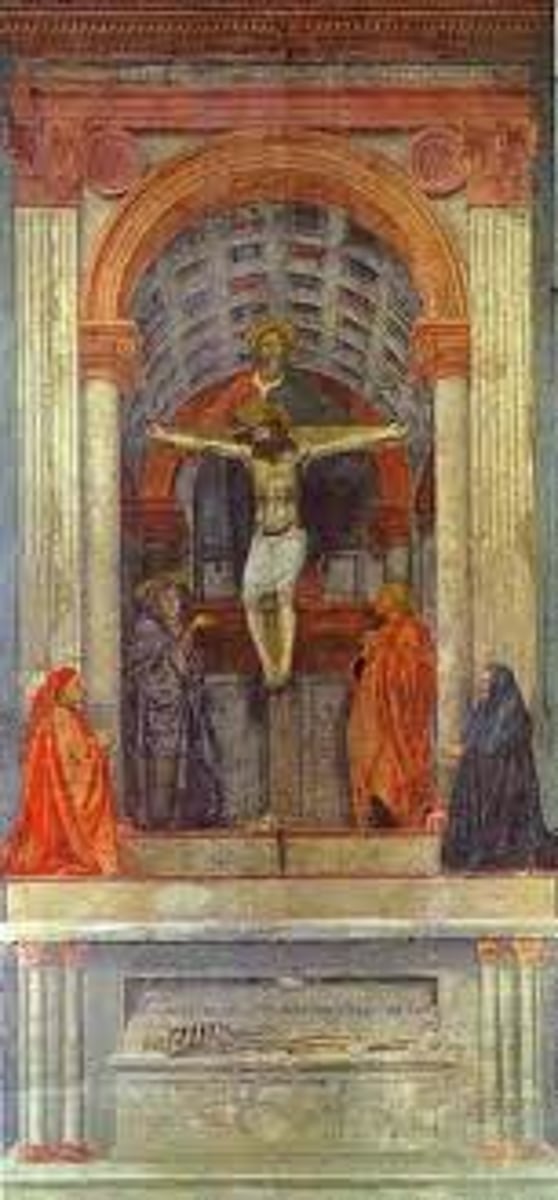
Role of the Father
Creator and sustainer of all life that exists.
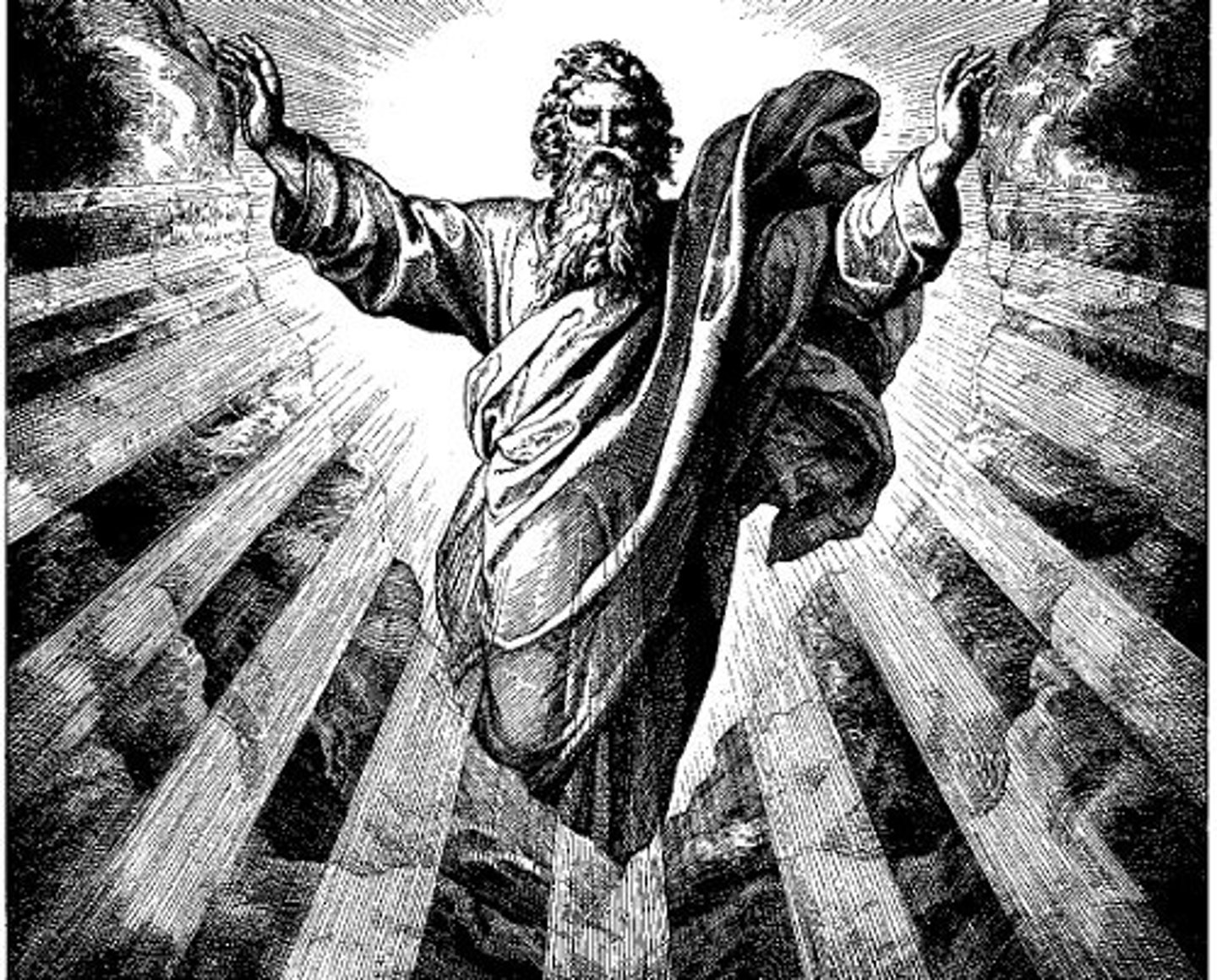
Role of the Son
God incarnate (Jesus)

Role of the Holy Spirit
- Source and force of life in creation
- Ongoing presence in the world.

Jesus' authority as God's authority
- The Nicene Creed
- The healing of the Centurion's servant
- "Now I know that you are a man of God."
- " All authority in Heaven and on Earth has been given to me"
- "Go therefore and make disciples of all nations..."
God's authority: Nicene Creed
- Has a normal human life as a teacher and healer
- But continues to have unique authority from God: described as "Son of God" in Nicene Creed.
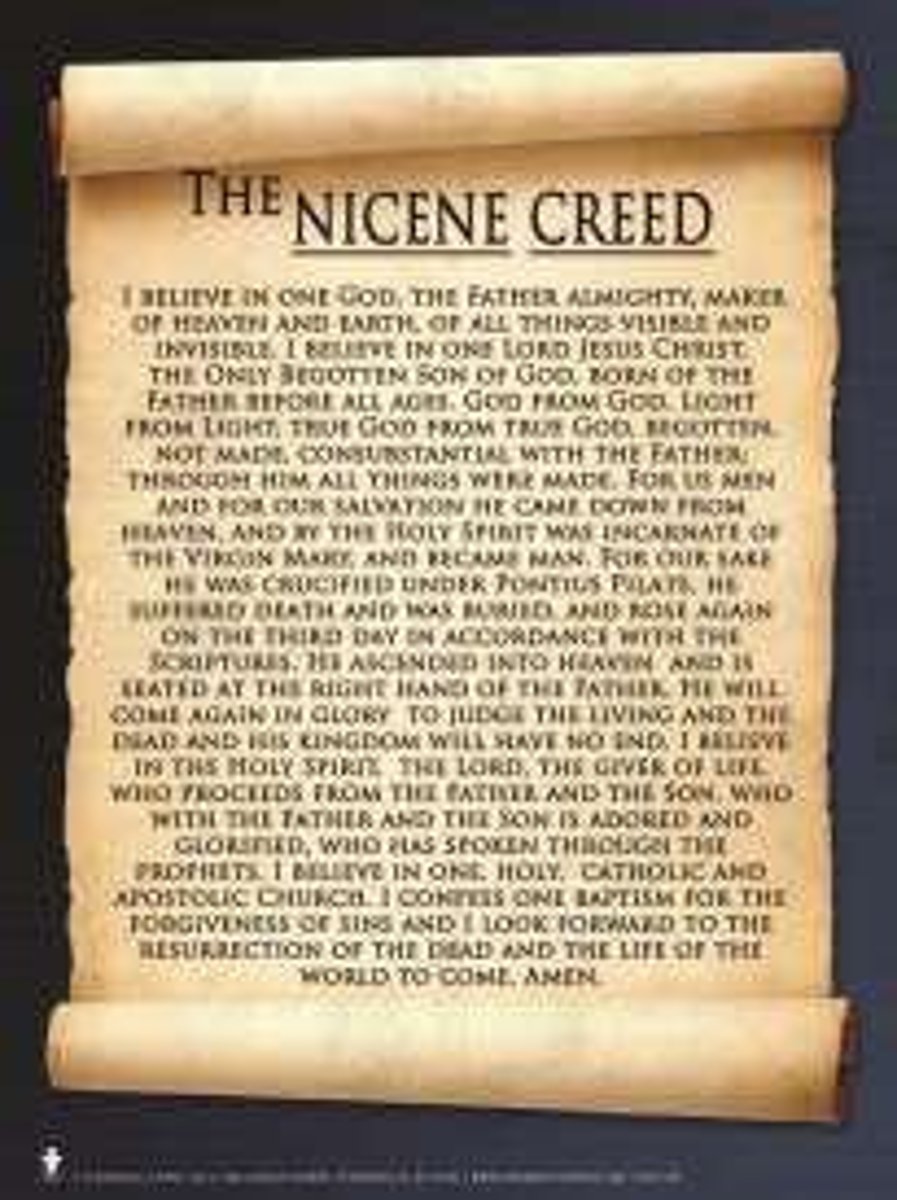
God's authority: Healing of Centurion's servant
- Can heal by spoken command from afar
- Authority to heal disease believed to be from God.
- "Go! Let it be done just as you believed it would." - Matthew
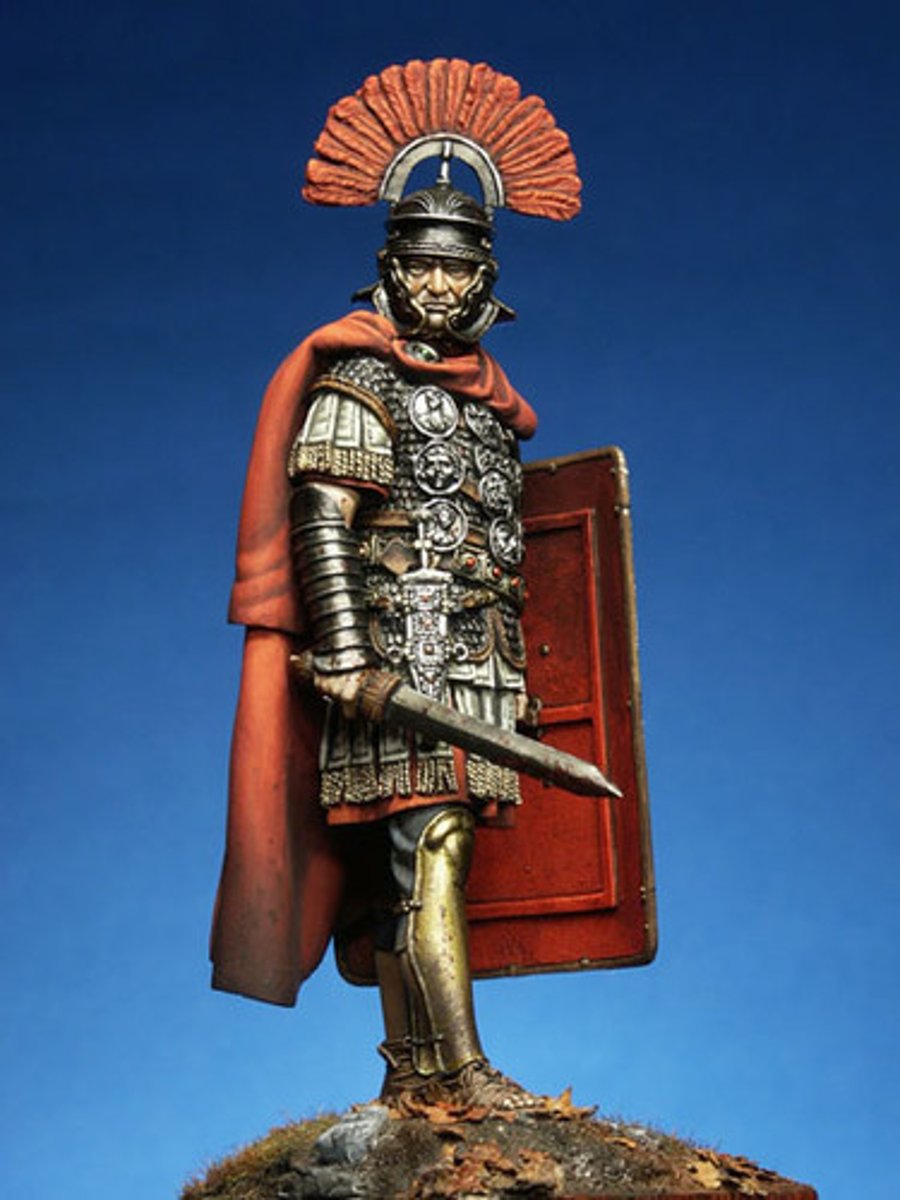
God's authority: "Now I know that you are a man of God."
- God also possesses healing powers.
- When Elijah calls upon God's power to resurrect the dead son of a widow.
God's authority: "All authority in Heaven and on Earth has been given to me."
This is where Jesus claims total authority from God.

God's authority: "Go therefore and make disciples of all nations”
- Shows Jesus claiming total authority of God and also Holy Trinity.
- Oneness of God (Godhead) is understood in three "persons".
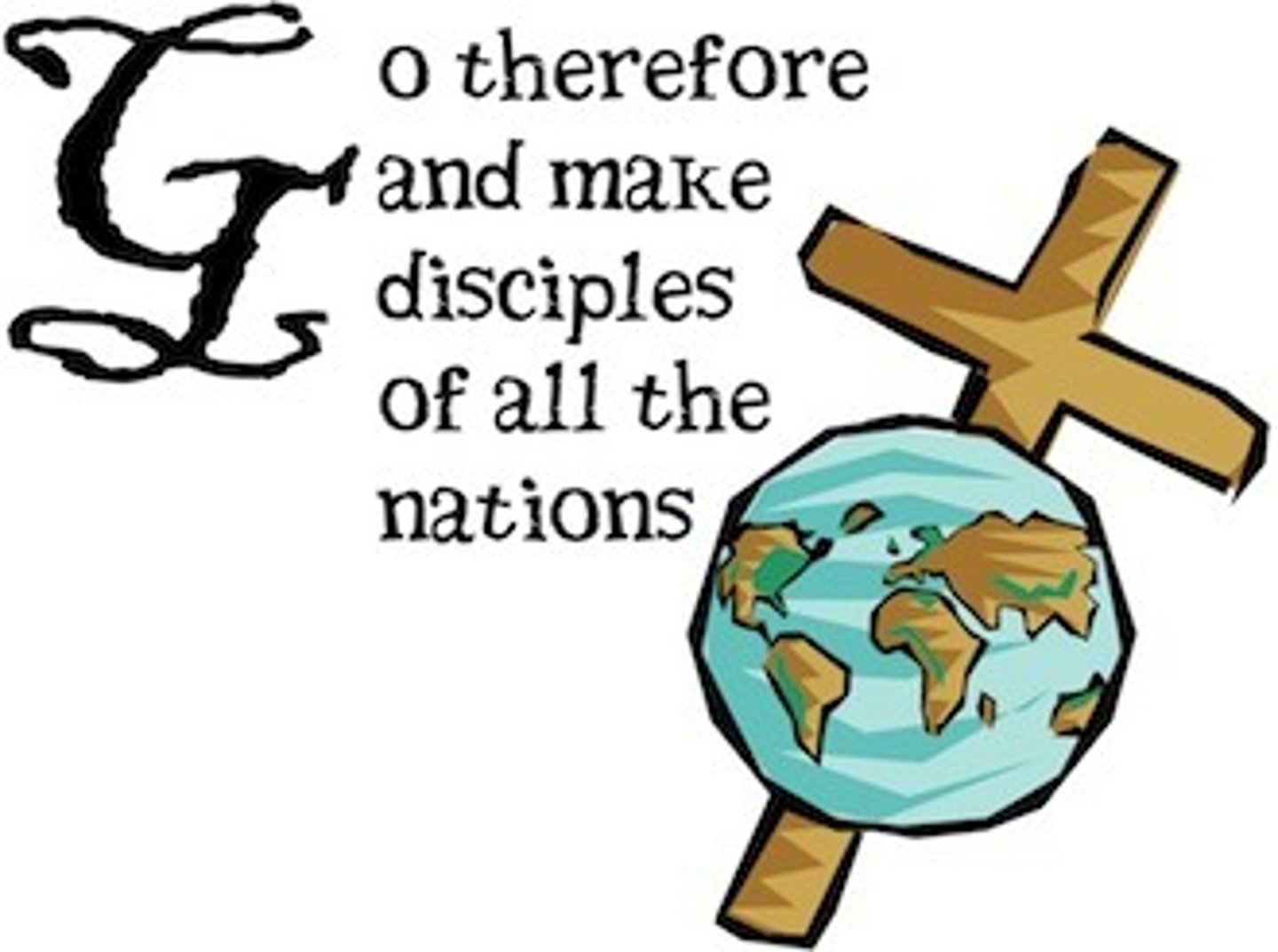
Title "Son of God" in the OT
Used sometimes as a special title for a human, but doesn't necessarily mean they have a divine nature.

Example of "Son of God" in the OT
Given to David
Title "Son of God" in the NT
- At Jesus' baptism
- At the Transfiguration
- Jesus describes his relationship with "The Father"
- Link between "Son of God" and expected Messiah
- What the High Priest says to Jesus
"Son of God" in NT: Jesus' baptism
During the baptism, this is what Mark describes the voice from Heaven said.
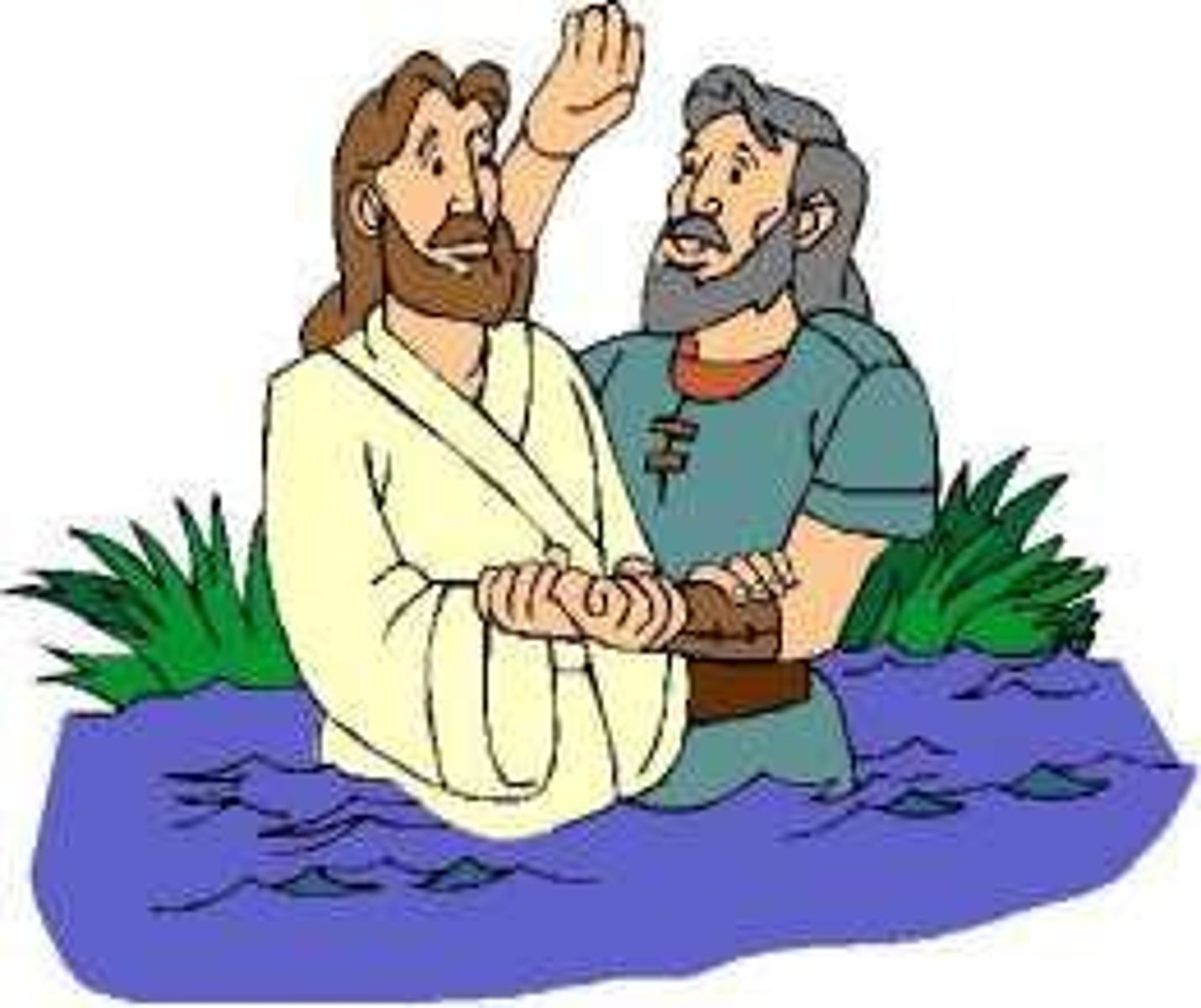
"Son of God" in NT: Transfiguration
The voice at Jesus' baptism described Jesus to be by nature the son of God.

"Son of God" in NT: Jesus describes his relationship with the Father
-"All things have been delivered to me by my Father; and no one knows the Son except the Father, and no one knows the Father except the Son.”
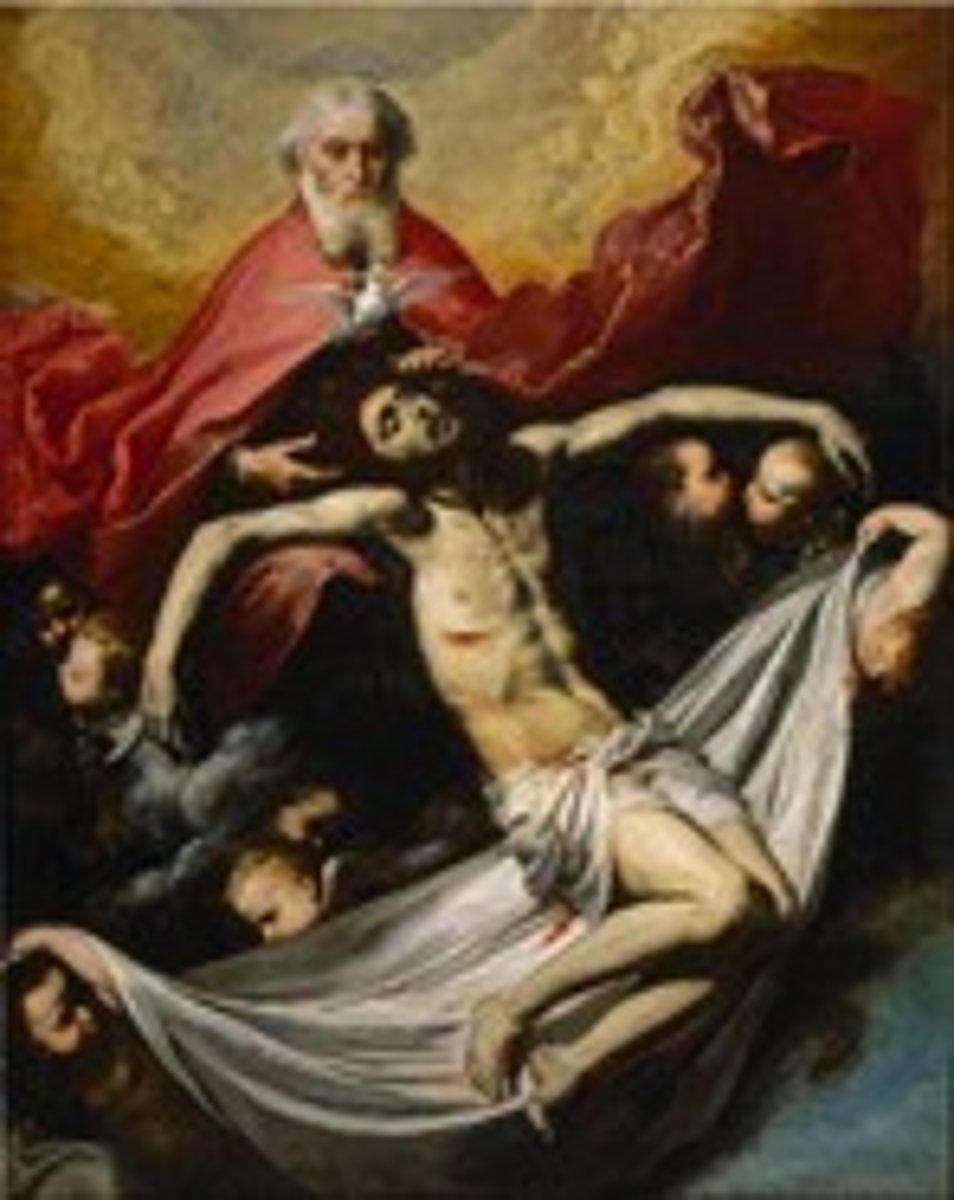
Vincent Taylor’s description of Son & Father
- "The same relationship with God that a son has with his father"
- "An intimate relationship with God, the same qualities and powers"
- "He inherits everything that he possesses."
Link between "Son of God" and the expected Messiah in NT
- The expected Messiah was to be descended from King David
- The Messiah would therefore be God's son.
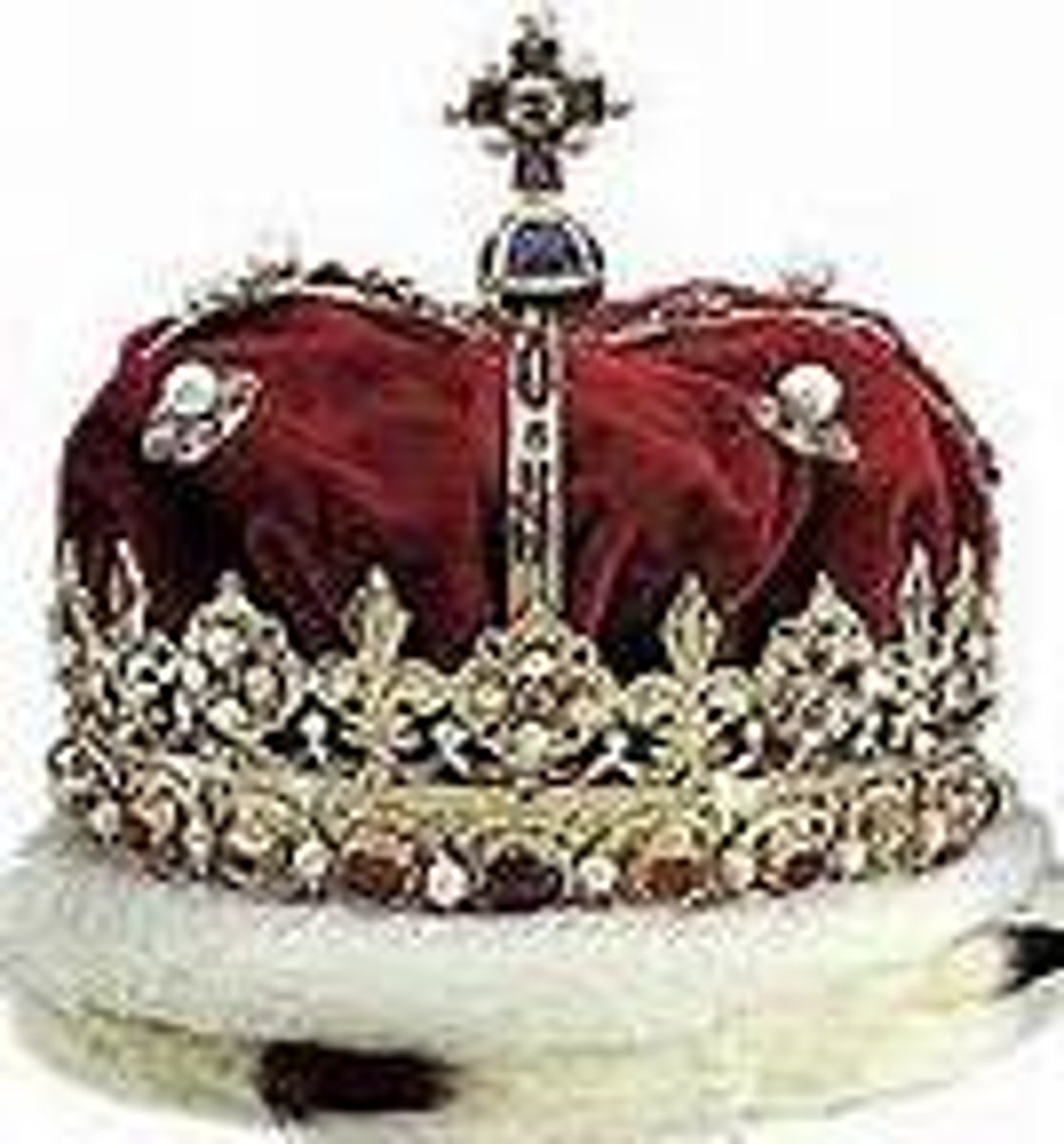
Messiah
Anointed by God
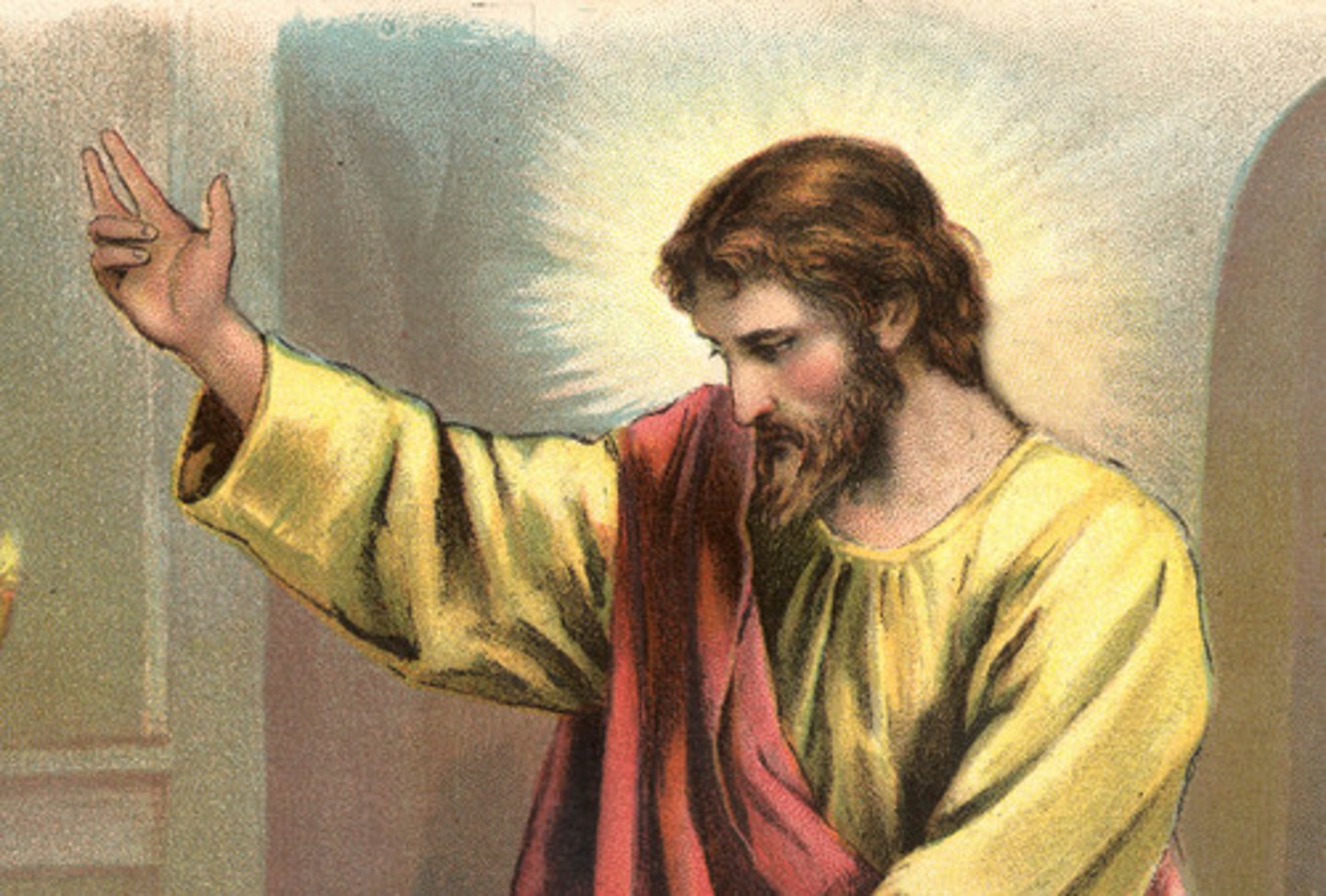
"Son of God" in NT: “Tell us if you are the Christ, the Son of God.”
-Said by the High Priest to Jesus
- Both Luke and Matthew emphasise that Jesus = descended from King David
- They do this by including a list of Jesus' ancestors.

Significance of Jesus using title "Son of Man"
Emphasises Jesus' humanity
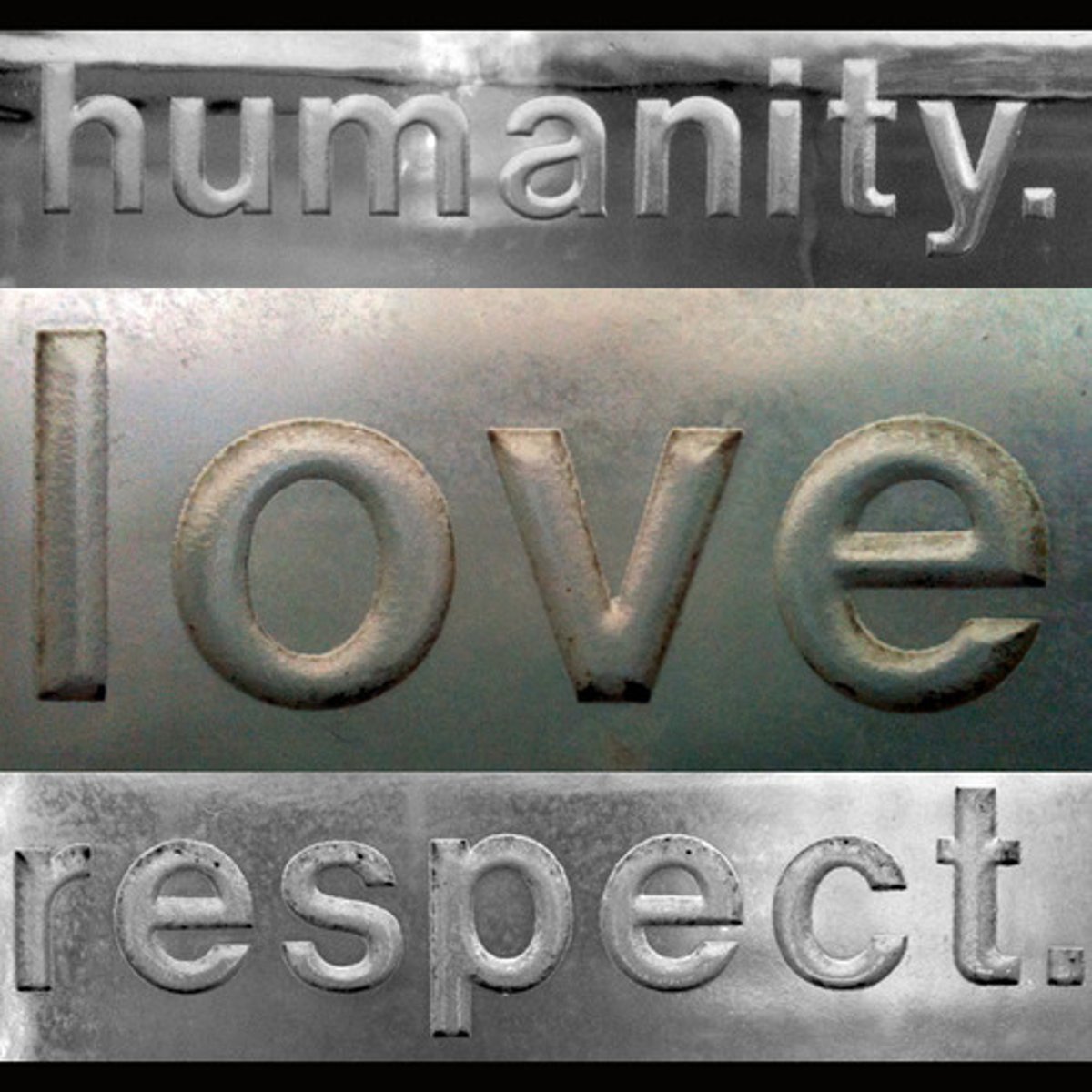
Son of Man
”The Son of man has nowhere to lay his head”

“The Son of Man has nowhere to lay his head".”
Jesus is open to the same types of human hardships as anyone else.

Son of God:"Truly this man was the son of God!"
Vincent Taylor:
- Centurion's words at the moment of Jesus' death
- They were "A confession of the deity of Jesus in the full Christian sense."
Deist
Someone who accepts the existence of God on the basis of reason and the world of nature.
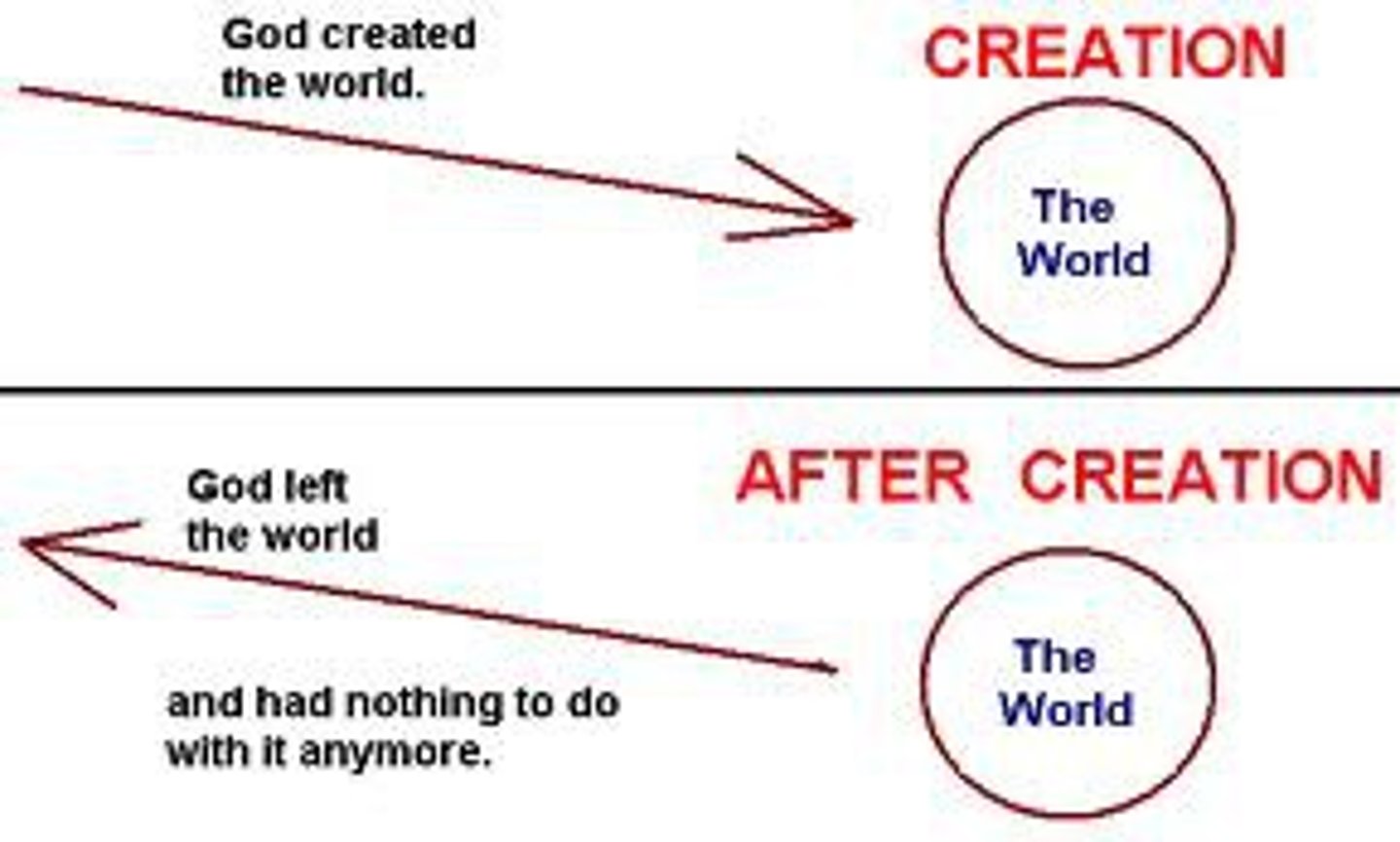
What idea do most deists reject?
Special revelation

Why do most deists reject special revelation?
They believe God created the world and then left it to its own free devices.

Two kinds of Christian that view Jesus' authority as human
- Followers of sect that believe Jesus wasn't divine
- Those who take a "liberal" approach to scripture
Christian sects who view Jesus' authority as human
- Adoptionism
- Arianism
- The Cathars
- Unitarianism

Human: Adoptionism - Principles
- Jesus = Born human, but adopted by God at his baptism
- Jesus' authority = Only acquired when he was baptised

Human: Adoptionism - Evidence from scripture
Beliefs are based on Gospel accounts of Jesus' baptism.
Human: Adoptionism - Origin
Believed in early centuries of the Church.
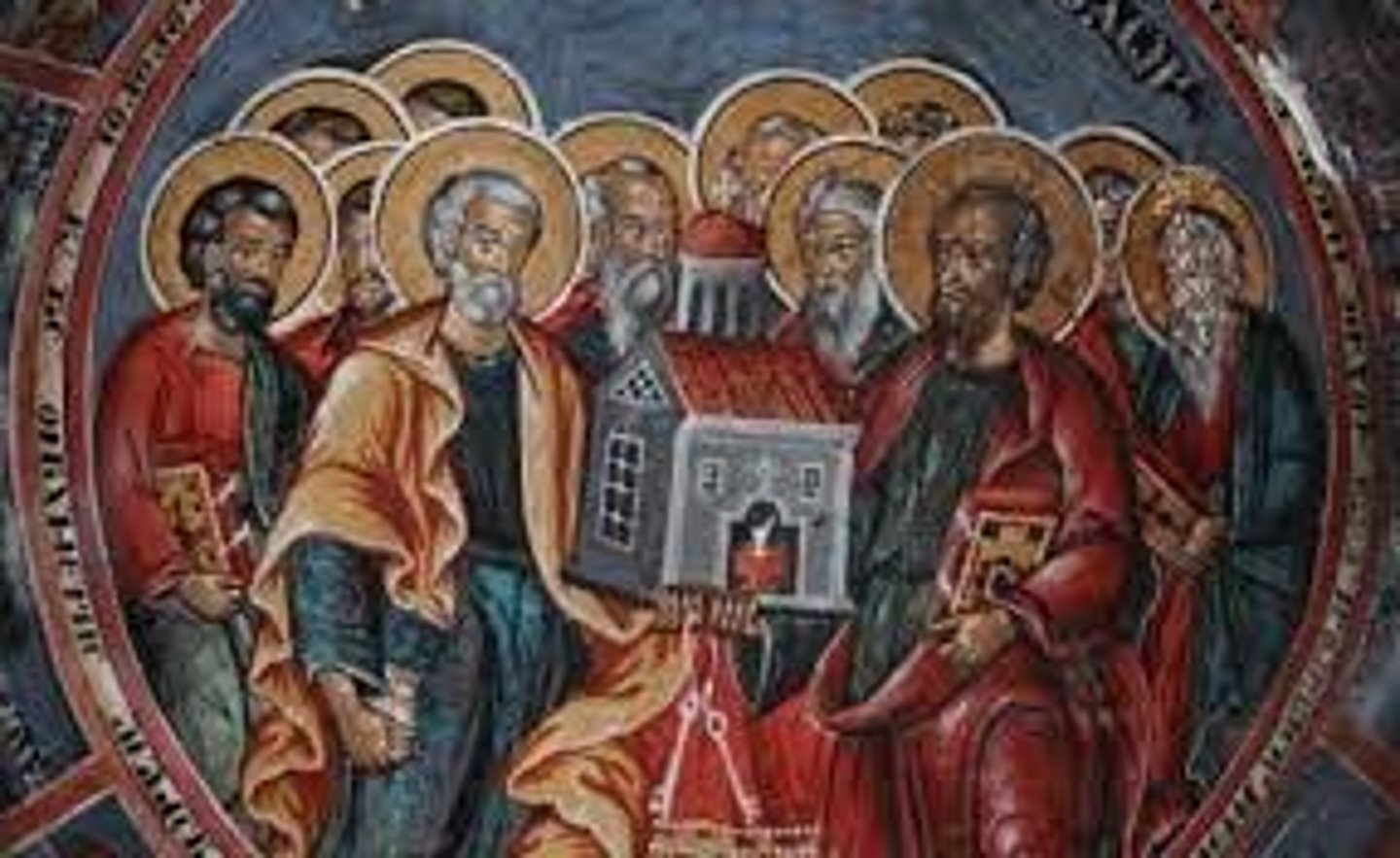
Human: Arianism - Principles
- Jesus = Created by God to fulfil a specific role
- "Son of God" = Honorary title bestowed by God
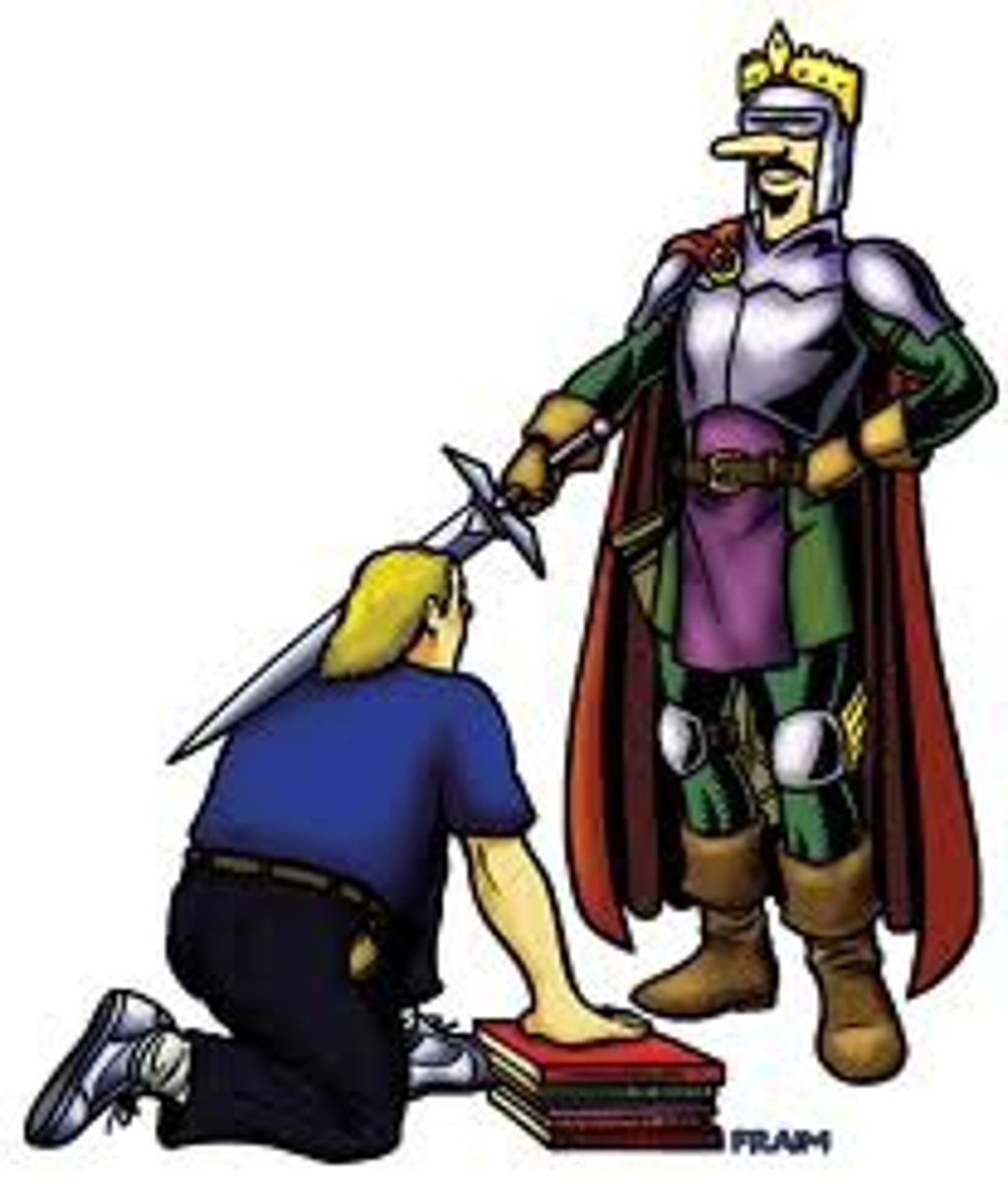
Human: Arianism - Origin
- 3rd - 4th Century
- Established by Arius
- Council of Nicaea ruled that Arius was wrong and sent him into exile.
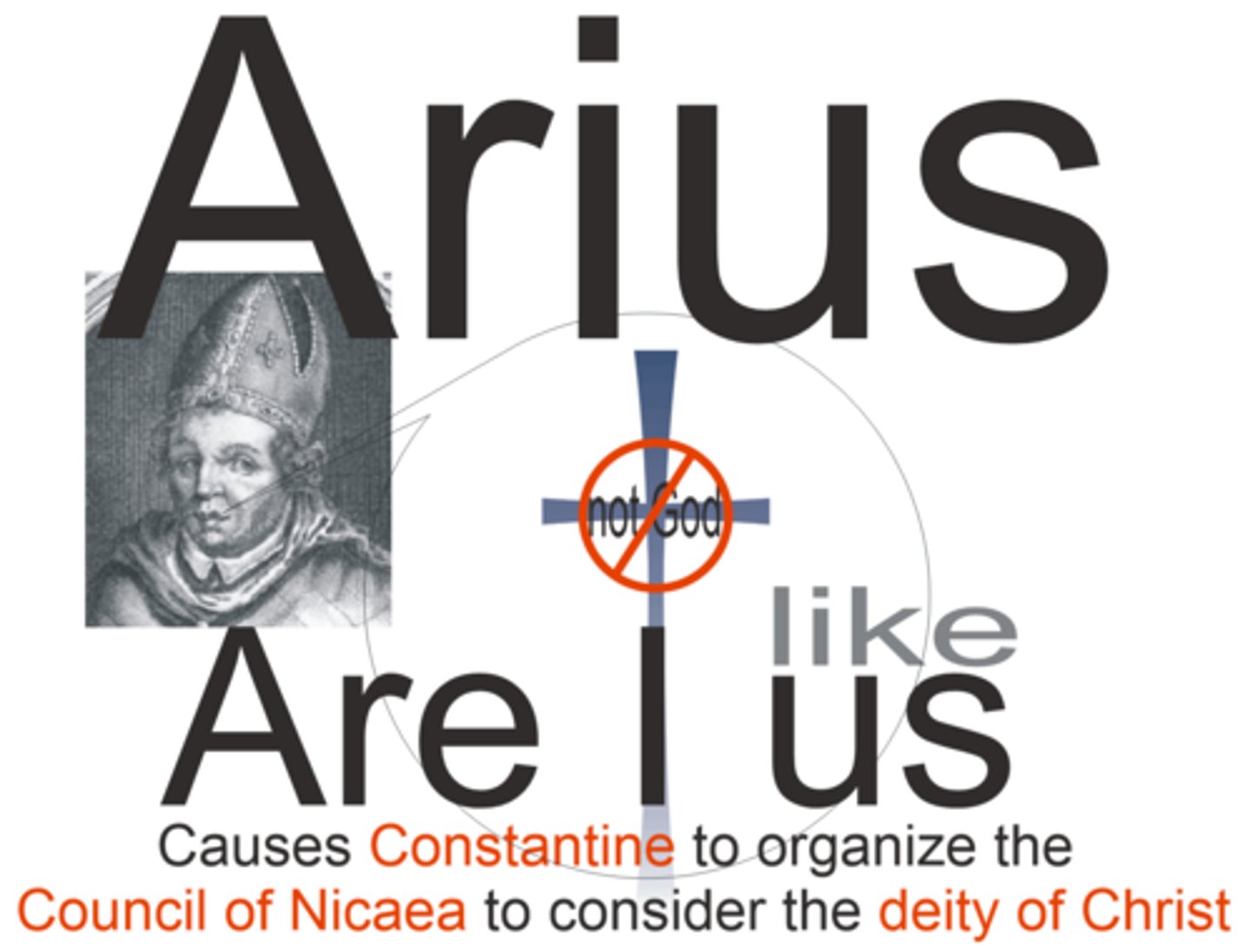
Human: Arianism - Arius
Priest in Alexandria

Human: The Cathars - Principles
- Matter = Too corrupt to become God incarnate
- For this reason, they believed Jesus couldn't be God incarnate human form.
- Similar views to Arianism
Human: The Cathars - Origin
- Established in 11th-12th Century
- South of France
- Sect known as "Catharism"
- Died out in early 14th Century, due to a crusade against its supporters proclaimed by the Pope.
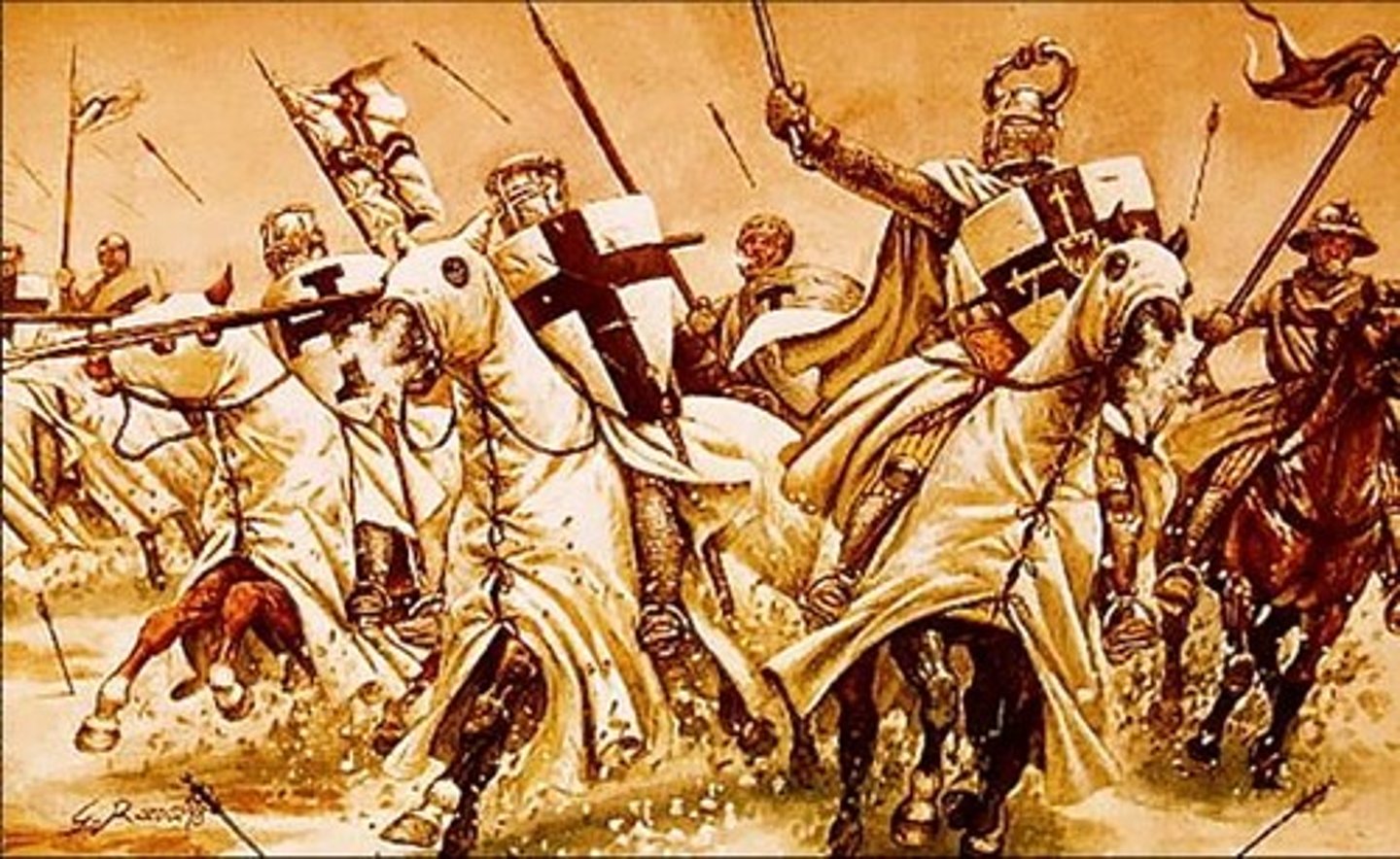
Human: Unitarianism - Principles
- Deistic understanding of God: Once creation was complete, God ceased to act within the created order.
- Jesus = Good man and Prophet of God, but only human and has no divine authority
- Some Unitarians believe in Adoptionism, so to them Jesus' authority = Spiritual, but human reason and experience = final judge of how people should act.
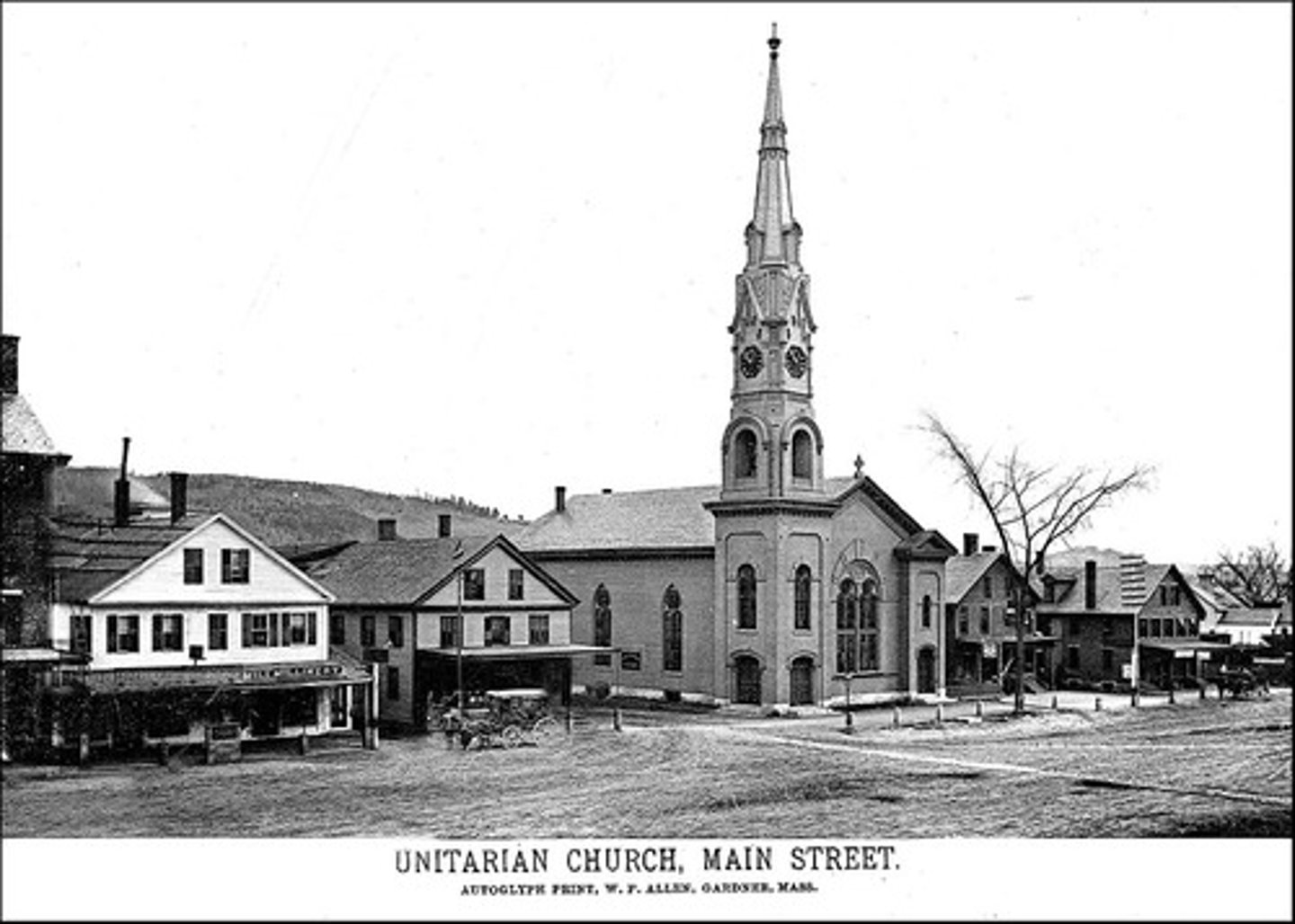
Human: Unitarianism - Origin
- Mid 18th Century
- Popular in Britain
- 7,000 in UK today

Human: Liberal approach
- Their view of scripture's inspiration and authority
- Claims about Jesus, and their compatibility with science

Liberal: Jesus in OT
- In OT, "Son of God" is used to describe beings that represent God's authority
- E.g. Angels, The King
- In that context, "Son of God" = "Someone close to God"
- Jesus as "Son of God" = Teacher/Healer/Spiritual leader, but not God.
Liberal: "The beginning of the gospel of Jesus Christ, the Son of God."
- Describes Jesus as literally the Son of God
- However, liberals interpret this as Jesus being an exceptional human being.
- They do not view the literal view as accurate as this was written around 40 years after Jesus' death - Believed it was an incorrect conclusion inferred by Early Christians from the text.
Liberal: Compatibility with science
- Reject anything supernatural, e.g. resurrections
- So Jesus' resurrection may be interpreted as "What Jesus stood for can never die"
- So Jesus as the Son of God may be similarly interpreted in a metaphorical way.
Christian responses to Jesus' teachings: Influences
- Understanding of Jesus' authority
- The degree to which scripture gives a reliable record
Gentiles
A word commonly used in the Bible to mean 'non-Jews'.
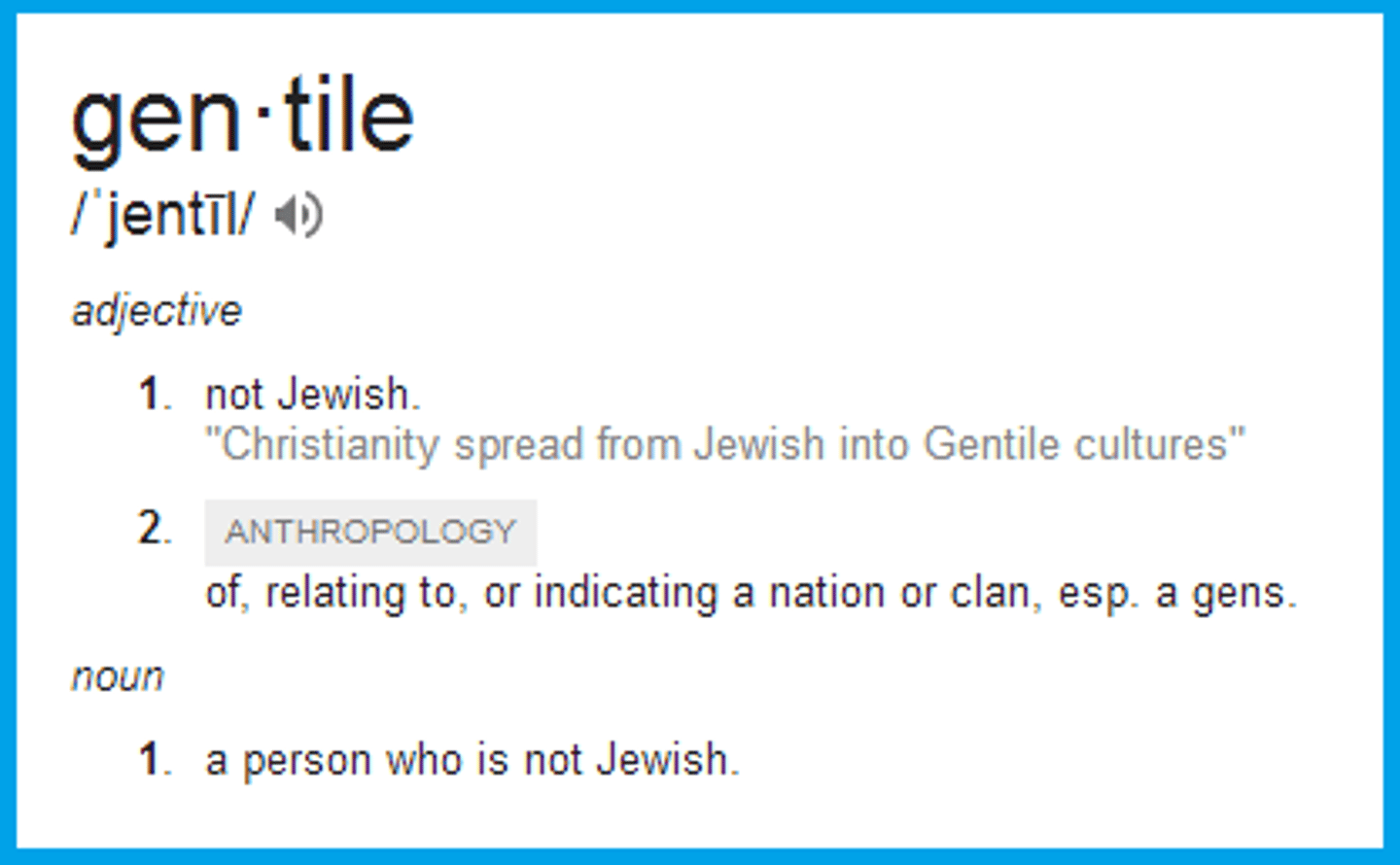
Pacifist
A person who will not fight under any circumstances and will try to show love towards those who might be their enemy

Example of Christian pacifists
Quakers

Sermon on the Mount meaning (God’s authority)
What Jesus says = What God requires us to do, so we must follow these commands literally.
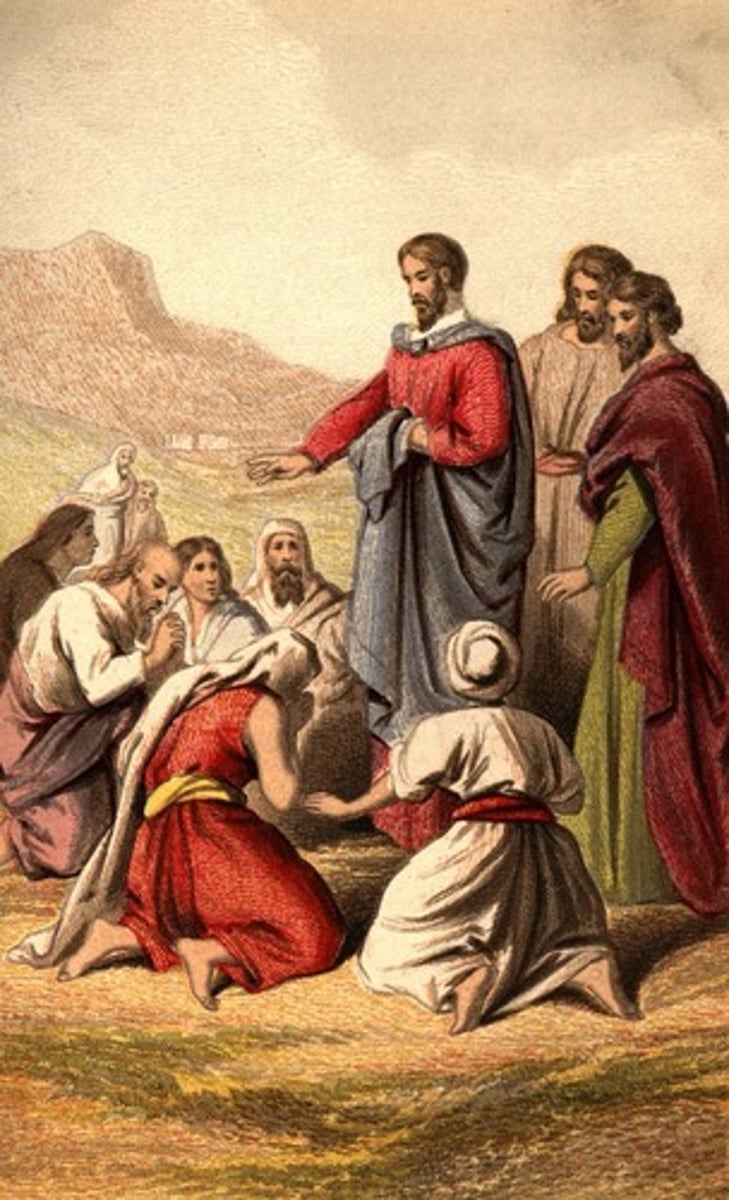
Links between pacifism and Sermon on the Mount
-Sermon on the Mount instructs Christians to not resist attacks and show love towards enemies.
- Some Christians became conscientious objectors in WW1.
- Quakers put pacifism into practice
- Some instead volunteered to provide medical support during WW1.

Why aren't all Christians pacifists?
- "And let him who has no sword sell his mantle and buy one." (Luke 22:36)
- Some Christians view this as an instruction against pacifism.

Position of UK Unitarians on pacifism
- Overall they universally commit to values of peace, justice, forgiveness and reconciliation.
- However, there is no obligation to be / not be a pacifist.

Jesus' authority as human: Sermon on the Mount meaning
- Jesus was speaking in the context of the Roman rule of Palestine, where resistance to the Romans could lead to crucifixion.
- Jesus was saying to go the extra mile to stay alive.
- Instruction to be perfect is a use of hyperbole
- Jesus is telling people this is the best way of making moral sense of their lives.

Jesus authority as human: Sermon on the Mount influence
- Some believe Jesus' teachings of pacifism to be correct
- Others deemed it cowardly, in the face of situations such as defending family.

Sermon on the Mount quotes
- "If anyone strikes you on the right cheek, turn to him the other cheek also"
- "Love your enemies and pray for those who persecute you"
- "You, therefore must be perfect, as our heavenly Father is perfect."
Jesus' value as a role model
- The more HUMAN Jesus is = LESS authority he has, but is MORE relevant as a role model.
- The more DIVINE Jesus is = MORE authority he has, but is LESS relevant as a role model.
Jesus as a human role model: Advantage
Sentiments such as WWJD only work if Jesus' example is relevant / applicable to human beings.

Jesus as more divine: Advantage
If Jesus is divine, he exemplifies the qualities of God, providing him with more authority than a role model.

Is the Sermon on the Mount more impactful if Jesus has human or divine authority?
- If Jesus is divine
- Christians place God at the top of moral authority
- So if Jesus = truly divine, following the Sermon on the Mount is obeying God.
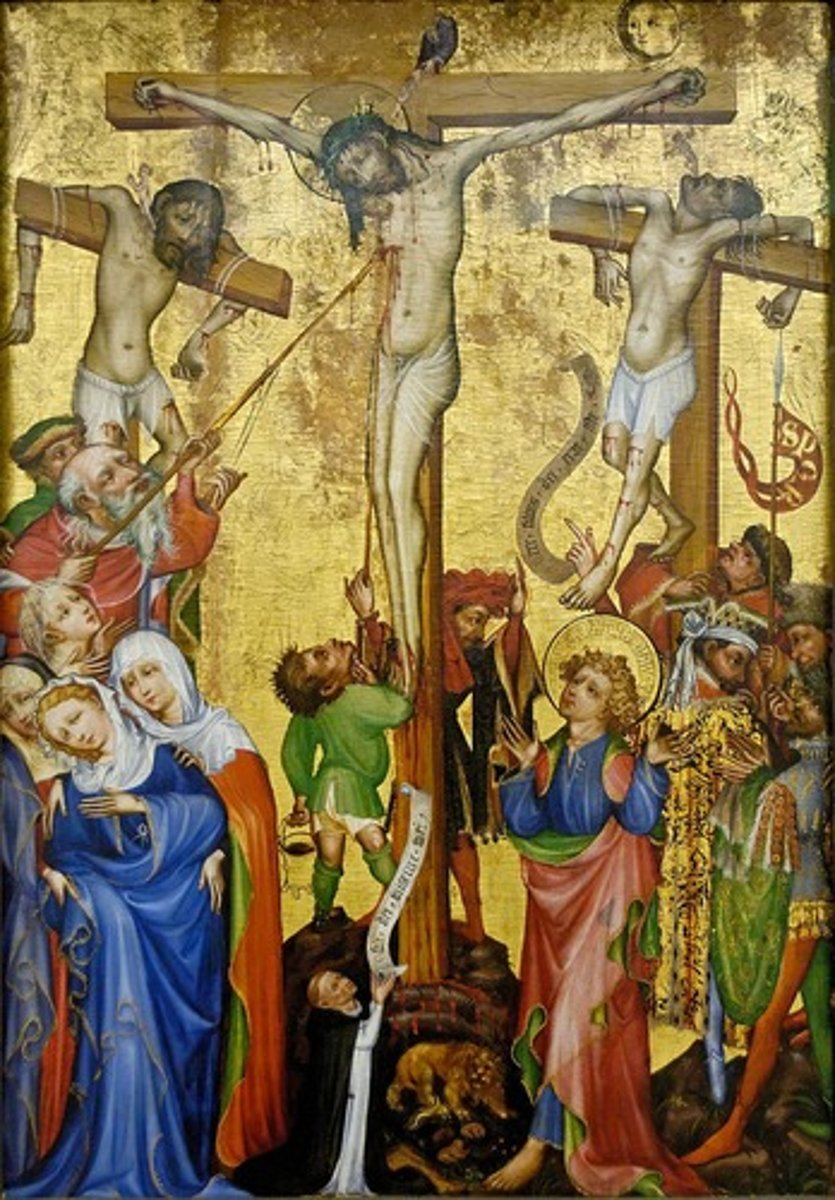
How do Evangelical Christians follow Jesus' example today ?
- Using the phrase "What Would Jesus Do?" (WWJD)
- A reminder to act in accordance with Jesus' principle of love in all situations.

Gandhi's beliefs about Jesus as a role model (quotes)
- "To me, he was one of the greatest teachers humanity has ever had..."
- "...I refuse to believe there now exists... a person that has not made use of his example to lessen his sins"

Gandhi's beliefs about Jesus as a role model (meaning)
- Didn't believe Jesus was divine
- However, he believed Jesus' teachings were morally correct and universally applicable.
- Therefore he believed Jesus was a positive role model.

Jesus as against pacifism in Bible
- His response to the dealers and money-changers in the Temple precinct during the Passover
- Turning over tables and driving out merchants, accusing them of being thieves.

Influence of Jesus as against pacifism
Jesus' willingness to respond vigorously to injustice in this scenario may provide a model for Christians to do the same.